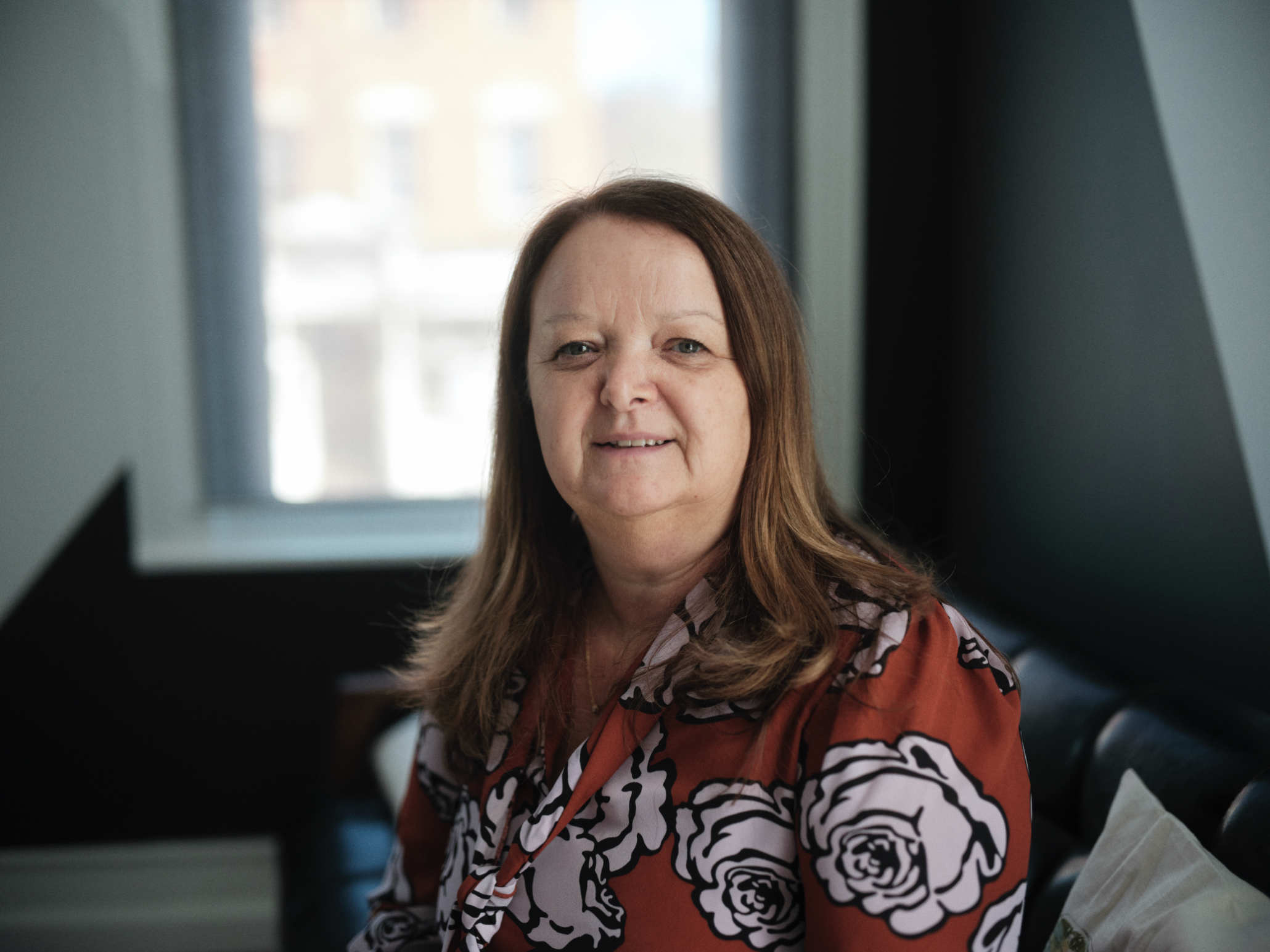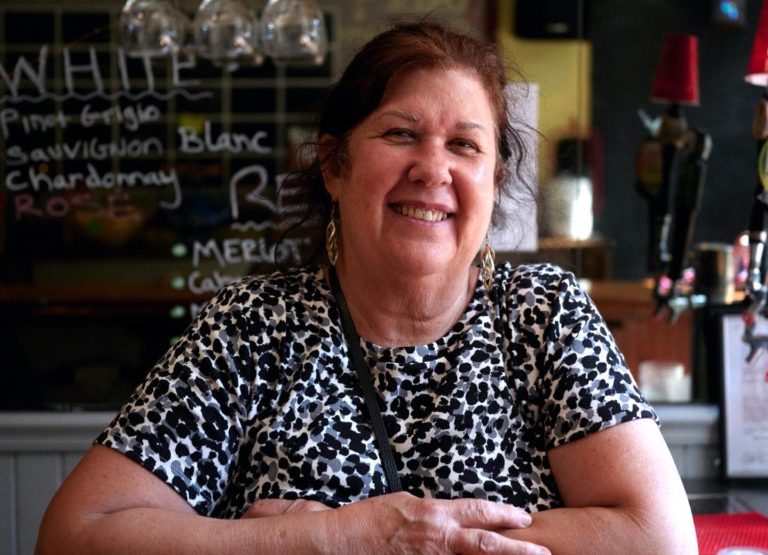"I tell people that if you find therapy helpful, tell your friends. The only way we’re going to change the negative stereotype is for people to talk about it. A problem with mental health is that it’s not always something we see. You have it inside and you think you’re the only person with those feelings."...
The Therapy Stop
Owner: Julia Mitchell

“I grew up dealing with a lot of stuff. I never talked with anybody about my feelings as a kid. I thought it was just me. There were mental health issues in my family and the stereotypical labels back then were greater, especially where I grew up in middle/upper-class England. We swept it under the carpet because of the stigma of how that would make you look as a person.
When I first moved to this country, I worked in marketing and did well, but I felt as if something was missing. I remember telling my husband that I wanted to give back and I recognized that talking with people is a talent, a gift of mine. So I went with my gut feeling and enrolled in evening classes at St Joseph’s College in CT and completed my Bachelor's degree followed by my Masters Degree in Social Work at Fordham University. While completing my internships I realized I connected with most people regardless of their race, economic status or religion so I knew that outpatient therapy-based social work would be the best track for me.
While doing undergrad studies, I worked with men in a homeless shelter which was fascinating. Counseling children in school and their parents at home while working for Family and Children’s Services was satisfying work. I also counseled incarcerated individuals at Baltimore’s central booking, many of whom were gang members and drug dealers that had never had the chance to express their feelings. To many people’s surprise, as a middle-aged Caucasian woman, they accepted me. I’ve never lived their lives but was eager to learn their perspective. I wanted to make a difference in their lives and they sensed that. One person who has stuck in my mind was a gentleman in his forties who cried for the first time in his life as he told me that when he was ten he watched his younger brother die in a house fire. He began crying to his father and was told to suck it up. His whole life he saw crying as a weakness because of how his dad treated him. I view it as an honor that somebody feels comfortable enough to tell me stories like that.
I worked for other people for many years and basically got fed up with the practices of therapy agencies and having my hands tied. The last place I worked I referred to myself as a conveyor belt therapist. I was expected to see 16 people in a day back to back with no extra time to give patients if they were in crisis or just having a difficult day. I like to give really good care and I couldn’t do so in that environment.
Now, I’m working to dispel the stigma and take a different approach to mental health. Some people believe you should be able to pull yourself together and turn yourself around. If I had my way, every elementary school kid would have 10-12 sessions about understanding their feelings. We all feel sadness and anger, but it’s what we do with those feelings that matter.

I tell people that if you find therapy helpful, tell your friends. The only way we’re going to change the negative stereotype is for people to talk about it. A problem with mental health is that it’s not always something we see. You have it inside and you think you’re the only person with those feelings. You feel isolated when you look at everyone around you and think they’re okay. Everybody puts on a brave face and looks fine when deep down they may be having the same issues as their family, friends or coworkers. And that is why we are trying to change the face of mental health.
We’ve created a team here so we can serve anybody and everybody within our community. We have 6 therapists who all come from different backgrounds and specialties allowing us to find the right therapist for the individual or family as everyone has different needs and wants. We also have a psychiatrist who works closely with our therapists to help with medication management. We have a nurse practitioner who will be joining us this fall, she specializes in mental health and is trained to do medical marijuana cards. We also have a small yoga studio on the 3rd floor and offer yoga once a week and will be bringing more classes in the fall.
It’s also important for us to support low-income individuals because they don’t get the standard of care they should. I’m passionate about making sure they get the same kind of care as others, so we accept Medicaid and most private insurances.
Federal Hill is a little community within a big city. I live here so this is my neighborhood and community. I think there’s a lack of mental health services in this area and I chose a main street for full exposure so that we can break the stigma of mental health. We have also chosen a location and design that is welcoming and boasts plenty of natural light to help lower people’s anxiety or hesitancy of entering the office for mental health services as it is often portrayed by dimmed lights and small spaces.
My vision is to do more community-oriented activities here like having talks about therapy, medications, aromatherapy, medical marijuana, and yoga using the whole-being approach. Everybody knows everybody and we work with each other to support one another’s businesses. We have a community spirit and bring people together. In Federal Hill, we help people with their well-being.”

About The Therapy Stop
A small business with big dreams to remove the stigma around mental health and provide exceptional, individualized care.
Business Location
(443) 557-8725



